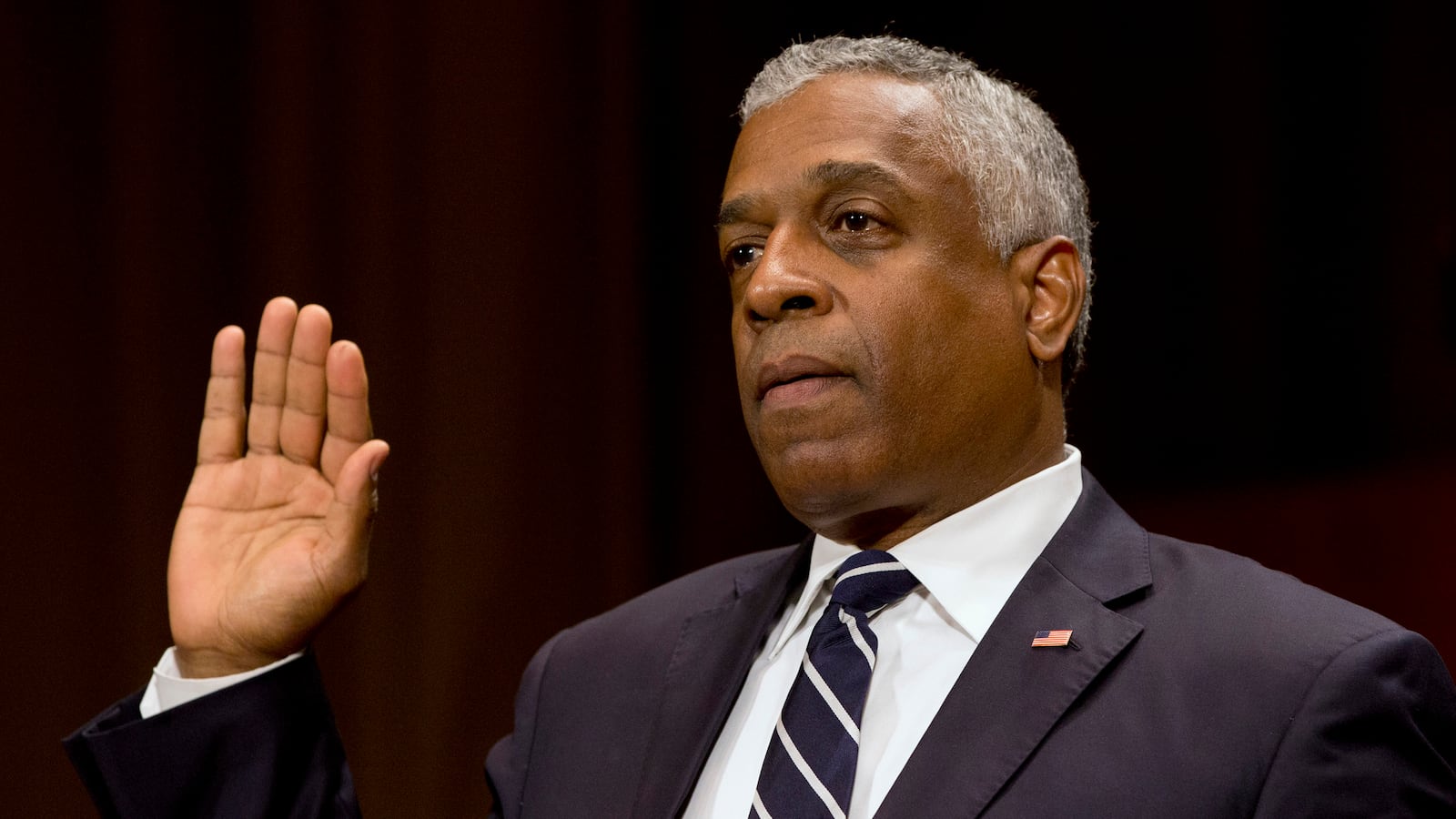Today the Senate Judiciary Committee is considering the nomination of B. Todd Jones to be director of the Bureau of Alcohol, Tobacco, Firearms, and Explosives, or ATF. Looking at his résumé—and given that ATF has been without a confirmed director since 2006—you might think Jones’s confirmation would be a no-brainer. After graduating from the University of Minnesota Law School, Jones eschewed big-firm law practice and served his country instead, joining the Marines. He became a judge advocate in the service and, upon returning to civilian life, an assistant U.S. sttorney in Minnesota. In 2009 he became the lead U.S. attorney there, in charge of federal civil and criminal cases. He also knows the ATF well, having served for the past two years as the bureau’s acting director.

Yet the ATF is the main federal entity charged with enforcing America’s gun laws. So Jones’s nomination is inevitably tied up with the messy politics of guns. The National Rifle Association and its allies on Capitol Hill despise the ATF and have worked hard over the years to handcuff the bureau, insistent that it threatens the Second Amendment. As a result, Jones isn’t likely to be making up new business cards soon—and America’s gun problem will only deepen.
With approximately 15,000 people dying from the criminal misuse of guns each year, the ATF’s mission of shutting down the illegal supply of guns to criminals is of vital importance. For years, however, the ATF has been left without the resources—and leadership—to effectively intervene in the illegal market for guns. One of the best ways to stem this flow of guns is to identify which gun dealers are improperly selling to criminals. Congress, however, has made this as hard as possible. Out of fear of ATF creating a gun registry—which would inevitably be used to confiscate all of America’s guns (of course!)—gun-control opponents have forced ATF to trace guns the way 17th-century monks copied texts: by hand.
When a gun is found at a crime scene, ATF agents can’t just look up who owned the gun in a computer database. They first have to call the gun manufacturer and find out which wholesaler purchased it. Then they have to get the wholesaler on the line and find out which dealer purchased the gun from the wholesaler. Then they have to call the gun dealer and have the dealer’s files searched by hand to identify the first consumer to purchase the gun. If the gun dealer is no longer in business, ATF agents have to search through files—many of them handwritten—maintained in cardboard boxes, one by one. Because we don’t require background checks on all gun sales, all this work may be for naught. Even if the person who bought the gun is identified, he may just say he sold the gun to an unknown person. For this secondary transaction, which is perfectly legal, there won’t be any files to sift through.
The process is daunting and, given modern technology, foolish. And yet the ATF is asked to do this over 300,000 times per year.
Cracking down on the handful of rogue gun dealers who fortify the supply of crime guns is made even more difficult by a law that prohibits the ATF from making more than one unannounced inspection per year to any gun dealer. Purportedly designed to stop the ATF from harassing law-abiding gun dealers, this rule ends up protecting the law-breaking gun dealers, who know that once the ATF has come by, the bureau’s agents won’t be back for the rest of the year. And at the behest of the gun-control opponents, Congress reduced the penalty for dealers who falsify records, which is now just a misdemeanor.
Moreover, the ATF suffers from a lack of funding. Since 9/11, federal law-enforcement agencies have seen their budgets skyrocket. But not the ATF, which now receives only marginally more than it did in 2000 adjusted for inflation. Because of the lack of financing, ATF agents only have the resources to conduct inspections of every gun dealer about once every seven years.
In 2006 Congress passed a law requiring the director of ATF to be confirmed by the Senate. Since then a string of nominees have wallowed in confirmation no man’s land, without a single one confirmed. It’s not a partisan thing—even George W. Bush’s nominee, Michael Sullivan, failed to secure a vote. It’s a gun thing.
The NRA consistently claims that instead of new gun laws, we need just to vigorously enforce the gun laws we have. How is that supposed to happen when the main federal enforcement bureau is institutionally hobbled?
Like every other law-enforcement agency, the ATF has had its share of scandals and mistakes. In gun circles, they still complain about a raid the ATF conducted in 1971 that resulted in a gun owner’s unfortunate death. More recently, Fast and Furious, the poorly devised and managed sting operation that allowed guns bought in the U.S. to get into the hands of Mexican drug lords, is the source of frustration with the ATF—even though it appears that much of the blame lies with the local federal prosecutors who refused to approve arrests of the gun traffickers.
It may be that these scandals are window dressing for the NRA’s real objection to the ATF. When you believe the only thing that will stop a bad guy with a gun is a good guy with a gun, what role is there for law enforcement?
Acting director Jones’s fate is largely a function of this broader politicization of the ATF and its mission. While some senators, like Chuck Grassley, have raised questions about Jones’s management style, it’s increasingly hard to take these complaints seriously when those same senators refuse to find any nominee acceptable year after year. The substance of the complaints also raises eyebrows. Senators have seized on a letter sent by an FBI special agent that Jones refused to prosecute cases involving gangs, drugs, and—get ready for it—gun crimes. So Jones must be too soft on gun criminals.
Despite today’s hearings, nothing with the ATF is likely going to change. The NRA and gun advocates have been emboldened by the defeat of President Obama’s gun reforms and are anything but eager to see ATF strengthened. Keeping Jones in limbo and continuing to handcuff the ATF from cracking down on rogue gun dealers are just more sacrifices the Second Amendment requires us to make.






